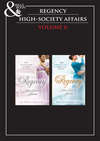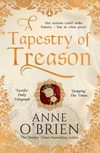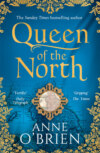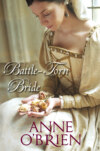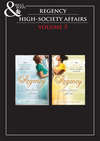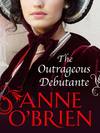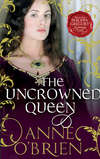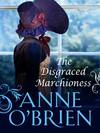Читать книгу: «Regency High Society Vol 6: The Enigmatic Rake / The Lord And The Mystery Lady / The Wagering Widow / An Unconventional Widow»

Regency
HIGH – SOCIETY AFFAIRS
The Enigmatic Rake Anne O’Brien
The Lord and the Mystery Lady Georgina Devon
The Wagering Widow Diane Gaston
An Unconventional Widow Georgina Devon

The Enigmatic Rake
Anne O’Brien
About the Author
ANNE O’BRIEN was born and has lived for most of her life in Yorkshire. There she taught history before deciding to fulfil a lifetime ambition to write romantic historical fiction. She won a number of short story competitions until published for the first time by Mills & Boon. As well as writing, she finds time to enjoy gardening, cooking and watercolour painting. She now lives with her husband in an eighteenth-century cottage in the depths of the Welsh Marches. You can find out about Anne’s books and more at her website: www.anneobrien.co.uk
Chapter One
Autumn 1819—Paris
This wing of the vast house was silent, the windows and the rooms behind them unlit with curtains securely drawn, the garden beyond dark and shadowed. Sounds of distant merriment drifted on the mild air, of music, laughter, the hum of a large gathering, but here there was nothing to disturb the midnight stillness. With its towers and turrets, gravelled drive and formal gardens, it was a formidable château on the very edge of Paris, the home of the Comte and Comtesse de Charleroi, where a celebration was being hosted for the forthcoming marriage of the heir. An event of notable interest and comment to the blue and noble blood of the Parisian beau monde. But here on a stone-flagged terrace of the west wing, overlooking a rigidly ornamental parterre, the felicitous event played no part in anyone’s mind.
The terrace was not as deserted as it might first appear. A dark figure merged into the inky shadow of the house where the twisted stem of a wisteria hugged, then overhung the wall to give protection. Beyond the fact that it was a man, tall and broad-shouldered, a solid outline, no other detail could be ascertained. Dark clothes allowed him to blend with the background and he was careful to keep the pale skin of hands and face from attracting any stray glimmer from a fitful moon. He wished to be neither seen nor identified. He was waiting. Un-moving, breathing silent and shallow. Waiting.
At last a noise. A careless scrape of a footstep on stone. Two figures emerged as darker shapes against the dark surround—one from the corner of the wing of the château, the other on the short rise of steps that led up from the garden to the terrace. An assignation, carefully planned. The hidden watcher tensed, but otherwise remained motionless.
There was nothing of moment in either figure, both as sombrely dressed as the one who waited and watched. They met at the top of the steps. A low-voiced conversation—brief and hurried—took place and something changed hands from both sides. Perhaps a letter and a flat packet. Then one turned and vanished once more into the garden, the black density of a yew hedge soon swallowing him and any possibility of footsteps. The whole scene took less than two minutes. The other made no move to return to the house, but stood in full sight, moonlit, against the terrace’s carved balustrade, head lifted as if in anticipation. Or perhaps he too was listening.
The watcher, after a brief moment to assess the quality of the stillness that was once again total, stepped out from concealment to advance cat-like with grace across the terrace. The man turned. This meeting, it would appear, was also not unexpected.
‘Well, monsieur?’ The watcher spoke in soft, low tones.
‘I have what you require, my lord.’ Hardly more than a whisper.
‘The list of names?’
‘Yes, my lord.’ The gentleman took from his pocket the letter that had only a moment before come into his possession. ‘Will you keep the agreement? That my name and identity be deleted from any further investigation into this delicate matter?’
‘Of course.’ Teeth glinted in the dark in a hard and particularly cynical smile. ‘I will keep my word, you may be sure.’ The watcher inclined his head in a gesture of some irony as he took a bulky package from his pocket.
‘Would you sneer, my lord?’ The gentleman, still holding the letter, breathed in with some hauteur. ‘Your involvement is not beyond criticism. Blackmail, for whatever purpose, leaves a particularly unpleasant taste in the mouth.’
‘True.’ The smile again. The glint of an eye. ‘But then—I do not sell the names of my compatriots to the enemy for money, knowing that it could mean their death, for a mere few thousand francs.’
The gentleman turned his face away, perhaps embarrassed by the justice of the accusation, then surprised his companion when he laughed softly.
‘As it happens, neither do I, my lord.’
There was absolutely no warning. No sound, no movement of air. Merely a deeper shadow within shadows, which advanced noiselessly from the shelter of an artistically clipped shrub in a marble urn. Before the watcher could react, a heavy blow was dealt to the side of his head from the butt of a pistol, almost robbing him of his senses. He groaned on a sharp intake of breath, automatically raising his hands in defence. But before he could gather his wits to respond to protect himself further, he found himself forced back against the stone balustrade by a pair of strong hands and the force of a well-muscled body. Next moment he had lost his balance, thrust by a wide shoulder and hard-driven thigh against and over the stonework. His fingers scrabbled to find some purchase in the lichened carvings, but he was falling, helplessly, to land heavily and ignominiously into the clipped box edges and fragrant plants of the garden some considerable distance below.
After which all consciousness and all knowledge left him.
In the fashionable quarter of Paris, some days later, in the home of the British Ambassador Sir Charles Stuart and away from the sumptuous reception rooms where visiting dignitaries were entertained and suitably overwhelmed, there was a small anteroom usually set aside for informal or private transactions. This particular interview was to be conducted not by the Ambassador, but by a gentleman who made it his business to remain unknown and unrecognised except by a very few. For the head of British espionage it was good policy to remain anonymous, particularly when it was hoped to discover the names of British politicians attempting to undermine British foreign policy, such as those who would find it politic to bring about the downfall of King Louis XVIII of France and the restored Bourbons. Politicians who might even go so far as to plot the restoration of the deposed Emperor Napoleon Bonaparte—if that ailing exile, imprisoned on the distant island of St Helena, lived long enough to see the day.
There was nothing about the gentleman to draw any attention. Indeed, he worked hard to achieve exactly that, being addressed in his public life as Mr Wycliffe. Neat, slight of figure, no longer young and with a quiet demeanour, he sat behind a desk with a document in his hand, a deep frown between his brows, as the door opened. He looked up, the frown growing heavier at the interruption, then rose to his feet with a quick smile as he saw the identity of his visitor.
‘My Lord Faringdon! Come in, my dear man. I had not expected to see you so soon. Come in and take the weight off your feet.’
The gentleman entered slowly, without grace: Lord Joshua Sherbourne Faringdon.
Those closely acquainted with the family would have given the opinion that Lord Joshua was typical of the Faringdon mould. Above average height with dark hair, although prematurely silvered to a gleaming and stunning pewter, and with the fine, distinctive features of all the men of the family. The straight nose and dark brows, the dramatically carved cheekbones and seductive mouth, the aura of power and self-will were all instantly recognisable. Under different circumstances he was acknowledged to be both elegant and graceful. Well-defined muscles would have rippled beneath the expensive cloth of his fashionable garments. But on this occasion as he walked forward into the room it could be seen that he was in considerable discomfort. His exquisitely tailored coat fit more closely than might have been usual, with evidence of heavy padding around chest and one shoulder. Furthermore he walked with a heavy limp, making use of an ebony cane, which was not merely for affectation. He lowered himself to a chair as invited with a grimace and a distinct lack of co-ordination, lips tightly pressed into a thin line.
‘How are you, sir? We have been concerned.’ Wycliffe resumed his seat behind the desk, eyes narrowed on his visitor.
‘I have been better.’ Lord Faringdon abandoned his cane on the floor beside him and eased his shoulders with noticeable effort.
‘I had not expected you to have left your bed. There was no need. We had been informed of—and accepted—your present inability to continue your mission.’
‘Perhaps you see no need, but since you would not come to me, sir, of necessity I must come here.’ The tone was not conciliatory. Wycliffe found himself pinned by a hard stare from predatory eyes, more austere grey than friendly blue. ‘I need to know your intent.’
Not willing to be cornered into any revealing or sensitive disclosures, Wycliffe deflected the demand. He had spent a lifetime in doing such. ‘There is time and enough for that. Joshua… ‘ he lapsed into a more intimate form of address, hoping to placate, although his words were not guaranteed to achieve that end ‘… you could have been killed.’
‘I am aware. It has crossed my mind to wonder why I was not. I could not have defended myself, and one dead English spy must have its attractions to those who would work against us.’ Lord Faringdon stretched out his right leg, easing torn ligaments of thigh and knee. ‘And although it shames me to admit it, I must consider that I was very neatly set up. I had no notion that I too was watched and my cover undermined.’
‘Hmm.’ Wycliffe steepled his fingers, elbows resting on the desk, to cast a shrewd glance over one of his most able, if most unlikely, employees. It would never do to underestimate the powers of comprehension of Joshua Faringdon. In the circumstances he owed him some degree of honesty. ‘It would seem that the Bonapartists have more skill—and certainly more determination—than perhaps we gave them credit for. They had no intention of handing over the names of those who would work to restore Napoleon and they also escaped with the money that you agreed to exchange for the list. You will not be surprised to learn that Monsieur Blanc—such an obvious name!— ‘ his lips curled in distaste ‘—who lured you to the Charleroi château, has disappeared from all his known haunts in the city.’
‘Very sensible of him.’ His lordship winced as he shifted his bruised and battered body in the exceedingly uncomfortable straight-backed chair. ‘I have a debt to pay there! But as I said before—where do we go from here?’
Wycliffe pursed his lips. There was no point in skirting the issue. ‘The problem is, my lord, that your role and your cover here in Paris may have been compromised, although to what extent we cannot yet guess. Perhaps it would be wise for you to remove yourself from the scene in the short term. It may be that you can no longer pose—as you have done with considerable success—as the careless and unprincipled libertine visiting Paris with an eye merely to his own interests and pleasures.’
‘No. I agree.’ Lord Joshua thought for a moment. ‘I still wonder why they did not kill me when they had the chance.’ He rubbed a hand over his face, returning to this one aspect of the night’s débâcle as if it had been keeping him awake at night, along with the physical pain, a memento of crashing from the terrace into the shrubbery. ‘Someone had sufficient affection for me not to wish to hear of my being discovered as a rotting corpse in a garden. So who do you suppose it was who broke my cover?’
Wycliffe pressed his lips into a thin line of distaste. ‘As to that, I could not guess. We have no traitors in our camp. Our security is second to none.’
‘Marianne?’ His lordship’s voice was soft, dangerously so. ‘Our security was appallingly suspect when dealing with that lady. You may have conveniently forgotten the details. But I cannot.’
‘Marianne is dead!’ The slight flush along Wycliffe’s cheekbones might have hinted at embarrassment if one did not know him better. Lord Faringdon watched him with a sardonic twist to his mouth. His Majesty’s spy master clearly did not wish to prolong any discussion of Marianne, the lady who had once had the honour of being Lord Faringdon’s vivaciously attractive wife. ‘The most crucial matter, since you are so concerned with our next step, is that your value, in this investigation at least, has been destroyed.’
‘So?’
‘I think that you should go home.’ On firm ground again, Wycliffe relaxed and allowed himself a more generous smile. ‘Regain your strength. Pick up the reins of your life in England and let the dust of this particular storm settle. I will contact you when things become clearer here and we may see a way to using your services once more. Besides, if Bonaparte dies—and it is my understanding that his health is poor and declining—our work here will be at an end and we shall simply close down this operation. So, as you can appreciate, there is no reason why you should not return to London until the dust clears.’
‘I suppose I could.’ Lord Faringdon showed no particular enthusiasm. He made to cross one leg over the other, remembered and came to a halt, fingers digging into the screaming muscles of his hip. ‘It is true that I have a motherless daughter who will no longer recognise me if I stay away longer. It is over a year since I last saw her.’
‘Well, then. Go and see your family.’ Wycliffe leaned forward persuasively.
‘Very well. You have more confidence than I that I shall be made welcome. I fear that gossip and speculation has made free with my name. I have it on the best authority that my mother considers my remaining in Paris to be of considerable benefit to the family in general and herself in particular, so that she does not have to make excuses for the scandalous behaviour of the head of the family.’ His lips curled to show his teeth, but his eyes were cold and flat, accepting of the situation that he had himself created as a prerequisite for his present occupation. Brows raised in polite enquiry, he looked again at his employer. ‘How do you suggest that I explain my physical state—considering that I have been here on a private visit of debauchery and excess, and am now returning with an obviously incapacitating injury?’
‘Oh, that’s easy to explain.’ The main business out of the way since Lord Faringdon had, it would seem, agreed to leave Paris, Wycliffe rose to pour two glasses of port, one of which he carried over to his guest. ‘I am sure that you can concoct some tale of a jealous husband who disapproved of your attempts to seduce his young and innocent wife. Disapproved sufficiently to dissuade you with a show of force. As you say, you have a reputation that is not inconsiderable—such a tale will be accepted by all. And if you can see your way to it being spread around the fashionable drawing rooms…’
‘Why not?’ A jaundiced shrug and a bland expression signified agreement. ‘It is not a résumé that I would have chosen, but I should have expected no less. I suppose I will have to tolerate the fact that, given my injuries, the jealous husband was able to beat me to within an inch of my life. How ignominious!’ His laugh had a brittle edge. ‘But who am I to cavil at being branded a ravisher and seducer of innocent—or not so innocent—girls? Government service demands a high price indeed.’
‘The cause is great, Joshua.’ Wycliffe was not unsympathetic. ‘Your efforts will not go unrecognised or unrewarded.’
‘I am not looking for a reward. I believe in what we are attempting to achieve. A stable government in France—a democratic monarchy with no repetition of revolution or the overthrow of law and order to unsettle the peace of Europe. I need no reward if we achieve such an outcome.’
‘Then let us drink to our success.’ Wycliffe raised his glass and the two men drank.
‘I shall leave next week,’ Lord Joshua stated, his decision made.
‘Excellent! I expect that you will play the role with your usual panache. If I might make a suggestion?’
‘Well?’
‘I suggest that you take the Countess of Wexford with you. She will not be unwilling and will reinforce your cover—your, ah, libertine tendencies. I believe she has more than a tendre for you.’ Wycliffe’s tone was dry as he noted the glitter of suppressed temper in Lord Faringdon’s eyes. ‘It should give the town tabbies all the ammunition they need to destroy your character and mask any further queries concerning your sudden return or the reason for your incapacity. You can embroider on the situation and your liaison with the fair lady as you see fit. There will certainly be no difficulty in persuading her to accompany you. No one will question your arrival in London.’
‘No. But my family might question whether they wish to associate with me! The Countess of Wexford. God help me! A more voracious woman I have never had the misfortune to meet.’
‘But Olivia is very beautiful.’
‘As well as self-seeking, manipulative and unprincipled. She would like nothing better than to get her claws into me and her fingers on my purse-strings. You have given me a hard path to follow, sir.’
‘I have every confidence in you, Joshua.’ Wycliffe rose to his feet, intimating the end of the conversation. ‘Take Olivia Wexford with you.’ It was more command than advice.
Lord Faringdon duly drained his glass and dragged himself to his feet, rescuing his cane, cursing as his limbs had stiffened.
‘On second thoughts… ‘ Wycliffe stretched out his hand, his frown deepening again. ‘About Marianne. I think that—’
‘No.’ The white shade around his lordship’s lips owed nothing to physical pain. His words and the manner of their delivery were harsh. ‘As you intimated so forcefully some few minutes ago, the subject of my wife is not up for discussion, Wycliffe.’
‘Even so—’
As you said, Marianne is dead.’
‘Very well.’ Wycliffe accepted the finality in the statement, if reluctantly. ‘I must wish you a speedy recovery, my lord. I know that you will do everything necessary to protect yourself. The identity of The Chameleon must not be allowed to suffer further revelations.’
Lord Joshua Faringdon left the British Ambassador’s home, lingering on the front steps to take a breath of fresh air. The Chameleon! A changeable thing, a creature of caprice, of quicksilver versatility. How fanciful. An identity acquired from those who saw only the glamour, the allure of a life dedicated to espionage. Yet, in reality, how sordid. Of course he could play the role of rake and libertine—had he not done so for years?—but that did not mean that he would enjoy doing so. If he needed to spread the gossip in London before his arrival, his sister Judith could be relied upon to do so. But he most certainly would not dance to Olivia Wexford’s avaricious tune or welcome her into his bed. He hoped, fleetingly, that the Prince Regent realised the sacrifices being made by some of his subjects to bolster the traditional monarchies of Europe in his name.
But he doubted it.
Chapter Two
Autumn 1819—London
‘Judith, I really must not—indeed, I cannot—live on your kindness any longer!’ Or on your charity!
Two ladies sat at breakfast in one of the elegant and supremely fashionable town houses in Grosvenor Square. A gentleman, the Earl of Painscastle, hid with deliberate concentration behind a copy of the Morning Post and determined to stay there. This was not the first time that such a statement had ruffled the early morning calm. Given the decisiveness in the tone on this occasion, matters were about to come to a head.
The two ladies, one his wife, the other his guest, faced each other across a spread of white linen. Much of an age, their appearance and character were very different, yet within the past months they had become fast friends. The red hair and green eyes of one spoke of a lively and energetic lady, dressed in the latest fashion despite the early hour. The other was of a quieter disposition with fair curls and calm blue eyes, her morning gown neat rather than fashionable. A quiet composure governed her every movement.
‘Dear Sarah!’ The redhead was in no way disturbed by this announcement. ‘Why ever should you not? I enjoy having your company.’ Judith Faringdon, now Countess of Painscastle, poured tea into her china cup with a flamboyant gesture. ‘Until you have decided what you will do next, where else should you stay? You are never a burden to us.’
‘You have been too kind, Judith. You are my dearest friend—but I would not outstay my welcome. I have finally made some decisions,’ replied Mrs Sarah Russell, a youthful widow and mother of a nearly six-year-old son.
‘Ah.’ Judith took a sip of tea. ‘Will you then go back to New York? To Henry and Eleanor and the children?’
‘No.’
‘Oh.’ The Countess frowned a little. ‘I was sure that you would and I know that they would make you welcome. In her letters, Eleanor writes that she misses you.’
‘I have thought of it,’ Sarah acknowledged. ‘But I cannot allow myself to be dependent on them either. It was bad enough that Lord Henry had to pay the cost of my passage from New York. It is time that I determined the future for myself and John.’
‘So what have you decided? Will you perhaps visit Thea and Nick at Aymestry?’
‘No.’ Another uncompromising answer.
‘They too would be pleased to see you. I know that Thea feels that she owes you much in achieving her present state of sublime happiness.’ Judith smiled at her romantic recollection of the recent wedding that the family had celebrated, of the love that had so palpably wrapped around Nicholas and Theodora, soft as velvet, strong as forged metal.
Mrs Sarah Russell sighed. That was the problem. Her friends had nothing but good intentions towards her and her young son, however unlikely it might appear that they would be willing to give any thought to her happiness or comfort. Amazingly, her history had become closely interwoven with that of the Faringdons. Instrumental in aiding and abetting her brother Edward Baxendale to make a fraudulent claim against the Faringdon estate, she knew that she did not deserve any consideration from them. There were no extenuating circumstances, even though she had been driven by her conscience to unmask her brother and his trickery. But they had forgiven her, a knowledge that still had the power to warm her heart. Sarah had severed her connection irrevocably with her brother and had been taken under the collective wing of the Faringdon family.
Sarah had aided Eleanor in her elopement to join Lord Henry, Judith’s cousin, in America, and Lord Henry had taken her in and given her a home in New York when she had most needed one. Her decision to return to England had been prompted by the fraught relationship between Lord Nicholas, Henry’s younger brother, and Sarah’s own unknown sister Theodora, an adventurous lady who had been adopted outside the family and brought up by Sir Hector and Lady Drusilla Wooton-Devereux. Reconciled to Thea, Lord Nicholas had made Sarah welcome at Aymestry Manor, both for her own sake and, of course, as a member of the family when he had married Theodora. Judith—well, Judith and Simon had simply held out the hand of friendship. Thus, Sarah knew that her debt to the Faringdons was immeasurable. She could never repay such kindness and they would never ask it of her. But it was more than time that she stood on her own two feet. For herself and her son. Her pride would allow her to be dependent no longer.
‘What will you do, then?’
Sarah drew in a breath, anticipating the opposition that would meet her carefully thought-out statement, but would not be deterred. ‘I must find a position, some form of employment. I need an income and a settled home for myself and my son. John is now more than five years. He needs a home. So do I.’
‘Sarah! No!’ As expected, Judith put down her cup with some force.
‘I only have a small pension from the navy since my husband’s death.’ Sarah laid out her argument as clearly and plainly as she could. It had sounded very well at three o’clock in the morning when sleeplessness had finally forced her to weigh her options. ‘I shall receive no further income from my own family, the Baxendales, either now or any time in the future. I made an enemy of Edward, did I not, when I uncovered his nefarious pursuits? So,’ she repeated, folding the napkin on her lap with careful precision, ‘I need a position of employment and an income.’
‘You must not work!’ Judith was suitably aghast.
‘Why not? Many women in my position, women of good family who have fallen on difficult times, would find no hardship in seeking some form of occupation.’
‘But what would you do? Tell her, Simon! It is not suitable that Sarah take employment. Indeed it is not! I cannot imagine what my mama would say if I allowed it. Or your sister Theodora.’ Judith stopped and blinked at the prospect. ‘Although perhaps I can. Thea has a sharp tongue and an apt turn of phrase. She would be horrified.’
The Earl lowered his paper at last. His eyes spoke of understanding and compassion for the lady’s predicament. ‘Sarah must do exactly as she wishes, my dear. Whatever it is, we will help. But I do agree, Sarah, with my wife. You must consider carefully before you take up any position that might be unsuitable for you. I understand your concern over your situation.’ He hesitated. ‘Are you sure that there is not a life for you in New York?’
‘No, I will not go back.’ On that one point she was adamant. ‘But thank you, Simon. I knew that you would understand. I shall remain here in England.’
‘And do what?’ Judith returned to the crux of the matter.
‘I think I could be a governess.’ Sarah’s lack of experience for any position troubled her, but at least this one, based on her own education and upbringing, held a possibility. ‘I have some skills appropriate for the education of a young lady. Or I could be a housekeeper, I expect. Would you give me references, dear Judith?’
‘No, I would not! I am not at all in favour and so refuse to aid and abet you in this ridiculous proposal.’ The Countess reached across the table to grasp Sarah’s restless fingers. ‘I will tell you what I think. You should marry again. You are so pretty, Sarah, it would be quite the best answer.’
‘Judith…!’ Sarah shook her head in frustration but returned the warm clasp. ‘I am twenty-five years old with a son. And little to recommend me in the way of good looks. Not like Thea, or Eleanor—both of them so beautiful. I fear that I would never draw all eyes if I stepped on to the dance floor at Almack’s as they would. I have no income of my own, no influential connections—nothing to recommend me. Who would consider marriage to me?’
Judith frowned and tapped her thumb nail against her pretty teeth, ignoring much of Sarah’s reasoning, selecting the one omission in Sarah’s explanation. ‘So you are not actually averse to remarriage.’
Sarah thought about this. A marriage of convenience? Never. The memory of her husband, John Russell, a captain in the Royal Navy, slowly crystallised in her mind. It was more than five years since he had died at sea in the final year of the Napoleonic Wars, before Waterloo. She was shocked at how unclear his image had become with the passage of time. She had been so young, he some years older, and she had been dazzled by the attention of this grave gentleman in flattering uniform with gold braid. Meeting her at the home of a distant relative in London, he had rescued her from an unsatisfactory home, carried her off and married her in the face of family disapproval. She smiled as she remembered him, a warm, caring man, considerate of his young wife’s inexperience and insecurity. It saddened her that she had seen so little of him during their brief marriage—a matter of months—and he had never set eyes on his splendid son, meeting death in a bloody skirmish at sea within weeks of the child’s birth.
Had she loved John Russell? Well—yes…if love was a deep affection, a warm, gentle, caring emotion.
Her mind flitted to more recent events where her memory was stronger, her emotions more recently engaged. Where she had seen a quite different interpretation of love. She had seen the strength of love possible between Henry and Eleanor, a bright, all-consuming passion that could sweep all before it. And more recently the unshakeable bond created from the heartbreaking difficulties between Nicholas and Theodora, where love had finally triumphed against all the odds. Love, it seemed, could be found in many different guises.
So, no, she realised, she could not accept a marriage simply for money or comfort or future security. Her heart must be engaged.
She became aware of Judith awaiting her answer with growing impatience.
‘No, I am not averse to marriage,’ she replied with a little smile, a ghost of regret. ‘But only if I find someone I can love. I will not marry for less.’ Catching a flash of interest in the Countess’s emerald eyes, she raised her hand, but laughed as she recognised the gleam of a plan being formed. ‘And I would be grateful if you did not set yourself to put me in the way of a suitable husband, Judith!’
Начислим
+16
Покупайте книги и получайте бонусы в Литрес, Читай-городе и Буквоеде.
Участвовать в бонусной программе
